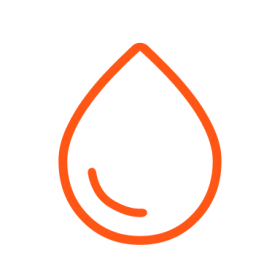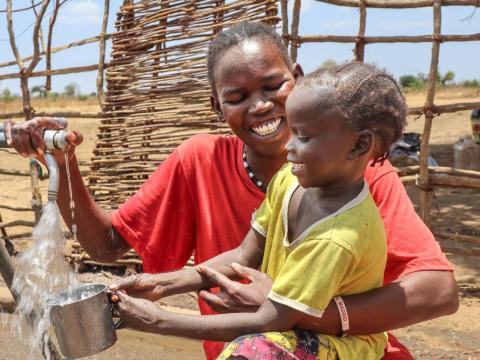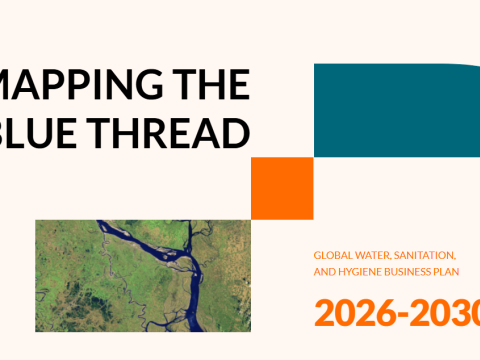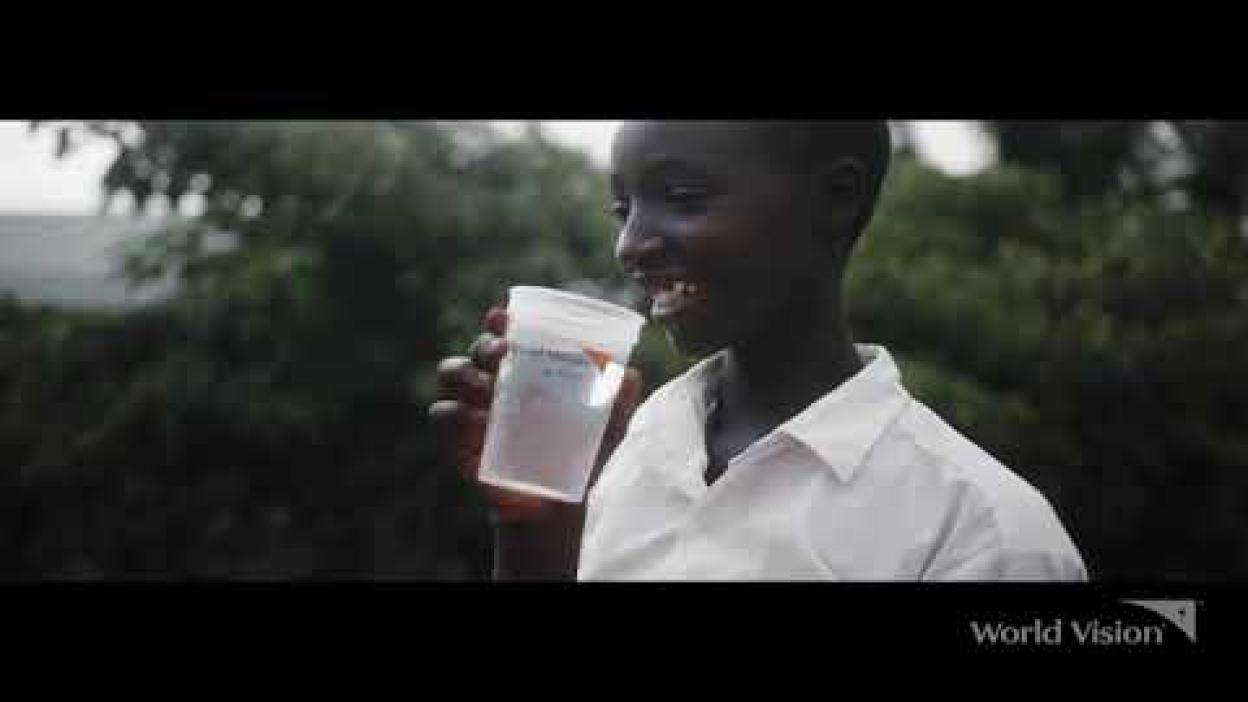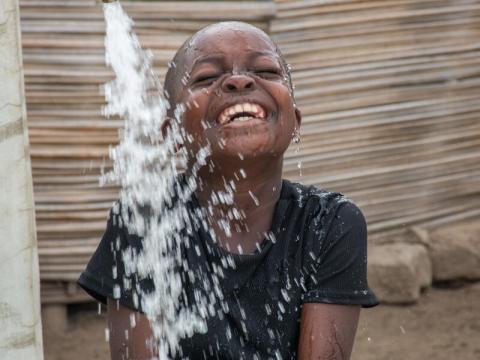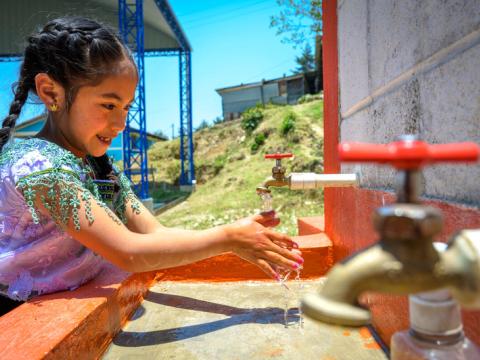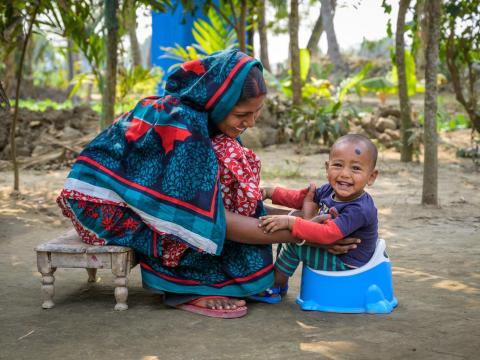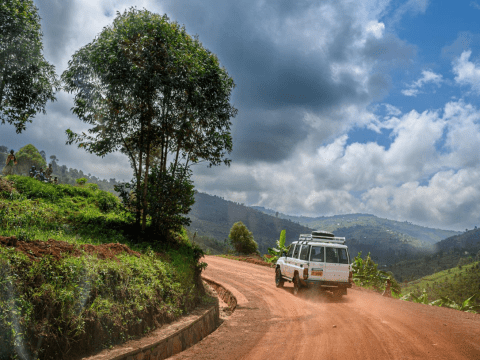Water, Sanitation and Hygiene
Our Impact
A world where all children have water, sanitation and hygiene
Water, sanitation and hygiene (WASH) are essential for children and their families to live healthy, prosperous lives. WASH is at the core of child health and development and is vital for a child's well-being. We focus on bringing clean water, dignified sanitation and effective hygiene practices to communities, schools and healthcare facilities.
Clean and safe water supplies reduce the time needed to collect water. This allows children to attend school and parents, particularly mothers, to have more time to generate income for their families. Safe, private toilets and handwashing facilities with soap keep children and families free from disease.
WASH services at school mean that children can stay healthy and focused on learning. And healthcare facilities equipped with WASH services mean a higher quality of care for patients, including mothers and their newborn babies.
There is still work to be done. More than 1000 children still die each day due to diseases caused by unsafe water, sanitation and hygiene. The world has made a commitment to ensure that everyone has access to safe drinking water, sanitation, and hygiene by 2030. This goal is known as Sustainable Development Goal 6.
Our Approaches
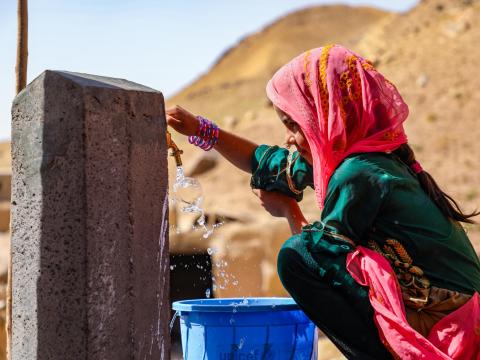
Water
We strive to provide access to clean water as close as possible to households. We build water points in partnership with communities and governments, and we work to ensure that water points are locally managed and maintained. We also emphasise behaviour change interventions so that water is kept safe during collection, transportation, storage and use.
We also provide clean water in schools and healthcare facilities, so that students and staff have access to water they need for drinking and other activities and patients and healthcare staff can wash their hands and keep their facilities and instruments clean to care for their patients and protect themselves.
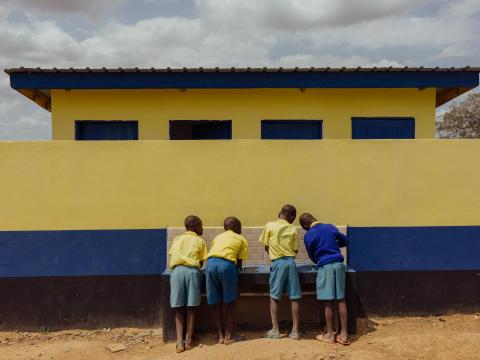
Sanitation
We believe every person should have access to a safe, private and dignifying toilet.
We have scaled up our work in sanitation, focusing on both building the demand for sanitation services and ensuring a sustainable supply of affordable household sanitation products. At schools and healthcare facilities, we provide toilets that meet the specific needs of women and girls and are accessible for people with disabilities.
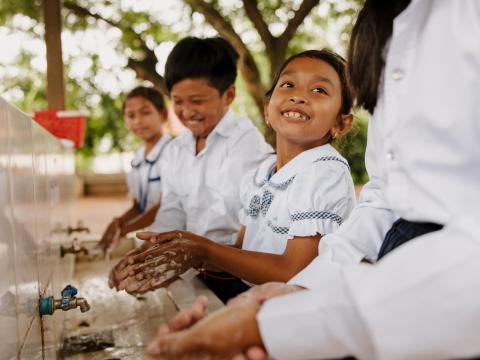
Hygiene
We believe every child should have access to the resources they need to keep themselves and their communities healthy.
We have increased our focus on handwashing including an emphasis on effective behaviour change programming, more durable handwashing products, and access to water close to home, at school and in healthcare facilities.
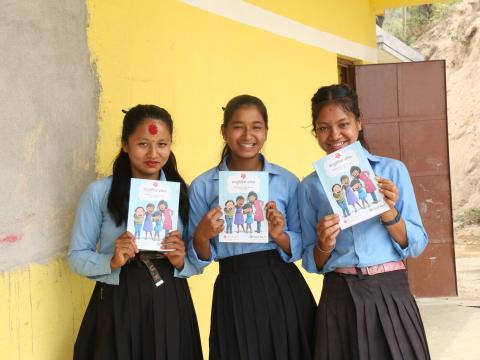
Menstrual Hygiene
We believe all women and girls have the right to menstruate with confidence, with dignity and with support.
Our programmes address all aspects of menstrual health and hygiene including policy and advocacy, timely and accurate knowledge about menstruation, social norms around menstruation, access to safe and affordable menstrual hygiene materials, and access to sanitation and washing facilities.
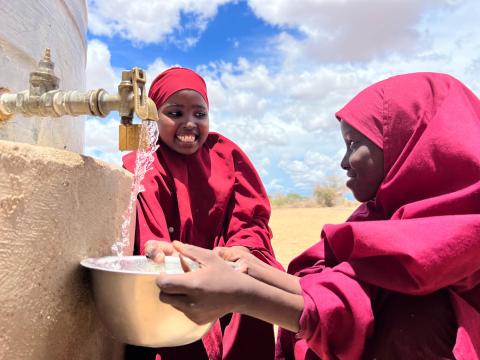
Water, Sanitation and Hygiene in Emergencies
Our approaches vary widely according to the need, culture, context and the nature of the disaster. In the early days of an emergency, we focus on providing immediate, life-saving WASH services in order to ensure survival of the most affected and most vulnerable children, families and communities. In the months following an emergency, we add programme activities that help communities recover and build back stronger than they were before.
We partner with governments, local organisations and the private sector, and our staff also take part in technical working groups along with agencies like UNICEF and UNHCR to ensure our work is coordinated with others on the ground.
